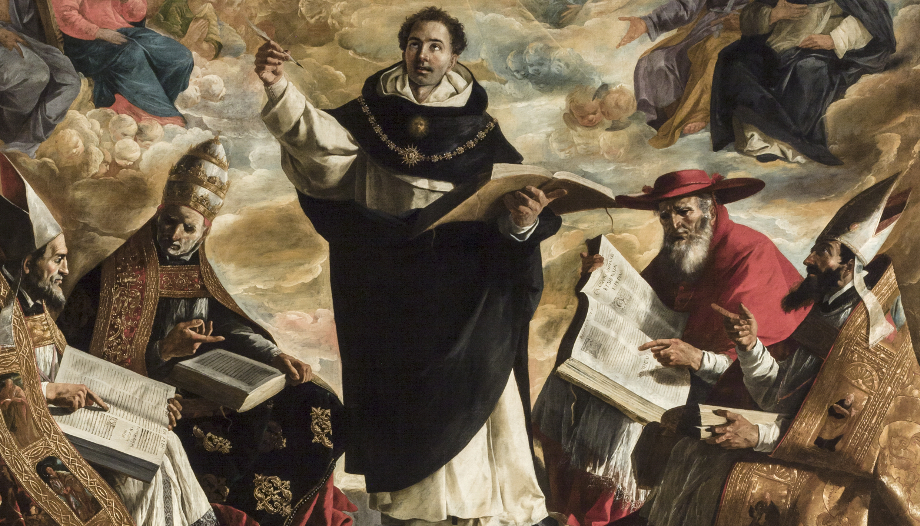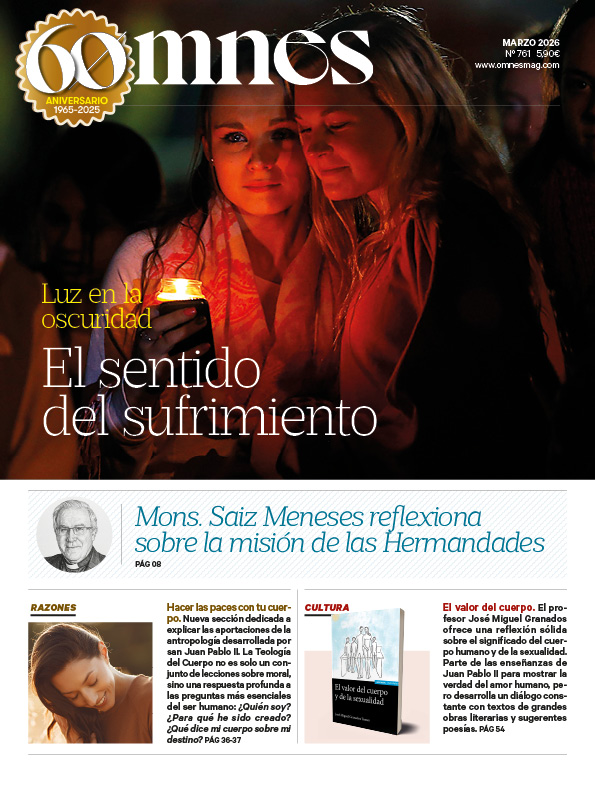In 1858 and 1859 Alfred Russel Wallace and Charles Darwin both published works proposing an evolutionary theory of creation. According to this theory, the present state of creation is the product of a long natural process of transmutation of species governed by chance and natural elimination. Consequently, evolutionary theories dispensed with the very concept of nature of an intrinsic teleology in the nature of things. Created beings are no longer considered as microcosms advancing towards some finality, but chance is what explains their evolution.
However, evolutionary theories not only influenced the definitions of the natural composition of human beings, but also had an enormous impact on the very meaning of "being" human.
One of the main moral schools derived from this view is moral naturalism. To give a general definition, moral naturalism is the school that holds that moral facts are facts that can be empirically deduced from scientific research by observing patterns of behavior and natural conventions collected by primatology, anthropology, biology, psychology, neuroscience, and similar disciplines.
As an example, some may argue that monogamy is a moral fact that could be explained by virtue of some sociological conventions, but has no intrinsic moral value. Say that apes only developed monogamous relationships to prevent males from killing the offspring of rivals. On the other hand, one could argue that the moral fact "thou shalt not kill" can be explained in view of a species' evolutionary need to survive or that "happiness" is a neurotic reaction.
I would like to underline certain features that influence popular moral value systems. These tend to (i) undermine a certain intrinsic finality or teleology engraved in the very nature of living beings; (ii) ground moral normative standards in primordial patterns of behavior.
The three faculties
Despite being unfamiliar with the evolutionary theories of modernity, St. Thomas Aquinas recognizes that human beings share common natural traits with other creatures. By "traits" here I do not mean behavioral characteristics, but natural powers by virtue of which the creature does something. Some of these powers are shared with more creatures than others. According to St. Thomas, the human person enjoys three kinds of faculties: (i) vegetative; (ii) sensitive; (iii) rational.
The vegetative power is the one shared by the greatest variety of creatures. It is the natural power of growth. A plant has an intrinsic power to root, to grow a stem, leaves and flowers. A human being also has an intrinsic power to grow from a fetus to a child to adulthood and so on. The sentient power is also shared with many other creatures.
Finally, the human being enjoys another type of power which, according to Aquinas, he shares with the angels and with God himself, namely, rational power. The rational power is twofold: on the one hand, the human being enjoys an intellectual openness to the external world by which he is able to know the truth of extramental beings. On the other hand, he also enjoys an affective openness by which he recognizes the goodness of other beings and desires them.
The rational activity of the human being is distinctive insofar as it enables the human person to live his or her life in a particular way. Any answer, therefore, that defines what constitutes the end of the human being cannot be oblivious to the particular vocation that arises from the very spiritual and material composition of human nature.
The paradigmatic sign of being human is, for St. Thomas, to act rationally, that is, to live one's life in the light of truth and in the pursuit of happiness, which is that ultimate good that is desired for no other reason than for its own sake.
Intentionality of the human being
For St. Thomas, the human being has a certain intentionality that emerges from the very interiority of his natural powers.
There is a certain particular perfection that is insinuated through the exercise of the noblest and most pertinent qualities of the human being: the power to know and rationally desire what is good, satisfactory and perfective for the human person.
Everything that enters into the realm of the will of the human person involves certain perfective qualities that the human intellect judges as goods that, in some way, would fulfill the desire of the human subject.
It is for this reason that Aquinas says that all things are pursued by the person under a notion of the good. Everything that the human person desires is desired insofar as it involves some perfective goodness.
However, Aquinas thinks that there is no created good that is completely identical to the form of goodness itself. Such a thing would have the capacity to completely satiate my desire for goodness. It would have to be such that, once attained, all desire for the good would cease and it would become of being master of its own acts and freely directing itself to what is truly perfective for it through the operation of its intellect and will.
To live one's life rationally, that is, to live one's life oriented toward what is truly perfective of the human person, constitutes freedom.
This is a very important point that St. Thomas does with respect to the human being. Contrary to the predominant vision of our time, freedom is not the absence of external coercion, but rather an interior enablement for the effective ordering of all the interior and exterior elements of one's life in the service of the ultimate truth and goodness that are perfective of the human person.
In the prologue to the second part of the Summa Theologiae, St. Thomas prefigures his treatise on freedom through the theological notion of the image of God. He writes that after having considered in the First Part of his work "the exemplar, that is, God, and of those things which arose from God's power according to his will," now, in the Second Part of his work, Aquinas turns to "the image [of God], that is, man, inasmuch as he too is the principle of his actions, as possessing free will and control over his actions."
Human being
This passage summarizes our previous discussion of what it means to be human for Aquinas. The human person is not the product of chance, but of God's wisdom and love, which shape a providential order according to which creatures, through the perfection of their forms, realize the image of God inscribed in their natural perfection and thus proclaim, in the realm of the created, the eternal goodness and perfection of God (cf. ST Ia, q. 44, a. 4). From this arises the meaning of what it is to be a human being.
To be human, for Aquinas, implies living one's life in freedom for the pursuit of truth and the love of God as the ultimate principles of the perfection of the human person. Ultimately, according to St. Thomas, a life lived in the worship of truth and goodness implies that, by being human, each person becomes a proclamation, in history, of God's divine wisdom and goodness joy for its possession. Our own experience teaches us that, despite the satisfaction we derive from the attainment of certain created goods, we still desire many other things.
According to the Angelic Doctor, there is only one end that totally exhausts the formality of goodness. This is another way of saying that there is a being whose very nature is goodness itself, so that when the perfection of goodness itself is attained, it is attained: God. For Aquinas, the deepest longings of human nature find their rest in contemplation and communion with God, for in God they find their perfect and ultimate object of truth and love.
Freedom
That truth and the good are perfective of the human being as a human being is indicative, not only of what is essentially his ultimate end, but also of the way to attain it. To be human, according to Aquinas, does not imply the imitation of primordial patterns of behavior. What is morally right and morally wrong cannot be measured by facts observed in various disciplines of the sciences. Rather, it must be assessed according to the degree to which they contribute to human flourishing.
The sign of human flourishing is the degree to which the human person is able to be master of his own actions and freely direct himself to what is truly per-fective for him through the operation of his intellect and will.
To live one's life rationally, that is, to live one's life oriented toward what is truly perfective of the human person, constitutes freedom.
This is a very salient point that St. Thomas makes with respect to the human being. Contrary to the predominant view of our time, freedom is not the absence of external coercion, but an interior enablement for the effective ordering of all the interior and exterior elements of one's life in the service of the ultimate truth and goodness that are perfective of the human person.
In the prologue to the second part of the Summa Theologiae, St. Thomas prefigures his treatise on freedom through the theological notion of the image of God. He writes that after having considered in the First Part of his work "the exemplar, that is, God, and of those things which arose from God's power according to his will," now, in the Second Part of his work, Aquinas turns to "the image [of God], that is, man, inasmuch as he too is the principle of his actions, as possessing free will and control over his actions."
Human being
This passage summarizes our earlier discussion of what it means to be human for Aquinas. The human person is not the product of chance, but of God's wisdom and love, which configure a providential order according to which creatures, through the perfection of their forms, realize the image of God inscribed in their natural perfection and thus proclaim, in the realm of the created, the eternal goodness and perfection of God (cf. ST Ia, q. 44, a. 4).
From this arises the meaning of what it is to be a human being. To be human, for Aquinas, implies living one's life in freedom for the pursuit of truth and the love of God as the ultimate principles of the perfection of the human person. Ultimately, according to St. Thomas, a life lived in the worship of truth and goodness implies that, in being human, each person becomes a proclamation, in history, of God's divine wisdom and goodness.
Professor of Sacred Theology at the Pontifical University of St. Thomas Aquinas in Rome.








